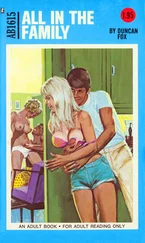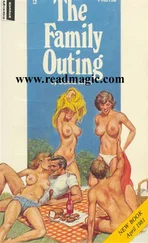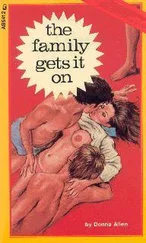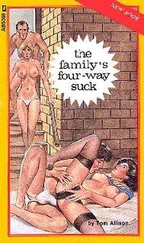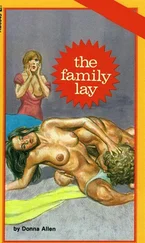Let’s talk about the meaning of “drop.” It’s not synonymous with “push” or “shove” or “throw.” If Perrine had thrown Malachy out of the window, she would have had first to pick him up and then to hurl his body out. Could a thirteen-year-old girl do that to a thirteen-year-old boy? I’m not sure. Maybe. Pushing him out would have been easier: there’s no picking-up requirement first—you simply stand behind and propel forward. But if Malachy wasn’t tall enough to fall, I’m fairly sure that must mean he wasn’t tall enough to be pushed either.
“Drop” implies that you first hold something, then let it go. Think about it using an egg as a test object. You can throw an egg out of a window without first holding the egg outside the window. Now think about dropping an egg out of a window. That suggests an outstretched arm protruding from the window, with the egg still held in the closed hand, and then . . . the hand drops the egg.
No thirteen-year-old girl could hold a thirteen-year-old boy outside a window in order to drop him a few seconds later, or even a second later. A small dog, on the other hand, a dog roughly the size of a Sealyham terrier, would present no problem. I think you use the word “drop” when you tell the story because you’re picturing Perrine holding Malachy with both hands, her arms outside the window. I think you’re imagining her looking him right in the eye, savoring that moment when there’s nothing but her hands and her power between him and certain death. Do you torture yourself by acting out in your mind those seconds during which she might have decided to save him?
Is it a test for Stephen, Fleur and George? To see if they’re as clever as you think they ought to be? Because you don’t truly trust anyone, you test people constantly, setting yourself up as judge. You haven’t told your husband and children that Malachy is a dog, but you’ve given them all the clues—including your careful use of the word “drop” whenever you tell them the story, and I bet you repeat it and discuss it often. They haven’t guessed yet. Does that satisfy you or frustrate you? Do you think you’re capable of having any interaction with another human being that isn’t entirely manipulative?
It’s not only the word “drop” that gives the game away. When everyone is invited to Speedwell House at the end of the story, the mother of Perrine’s third victim, David Butcher, says to Malachy Dodd’s “mother,” “Will you pipe down? Do you
know
who my son was?” At first I thought, “Snooty elitist mother of Cambridge college organ scholar,” but, really, what mother would say that to another woman in the exact same position as her, when they’ve both lost their sons? I don’t believe anyone would, not even the snobbiest person in the world, and they certainly wouldn’t follow it up with: “Are you even a
tiny
bit embarrassed about how much airtime you’re taking up today?” (See, Anne? The oral tradition is alive and well. I have the whole story, as if from your mouth.)
It makes far more sense if Malachy is a Sealyham terrier, doesn’t it: Mrs. Butcher thinking, “This is unbelievable! People have died, and she’s playing the part of Chief Tragedy Queen when all she’s lost is a bloody pooch!”? Because so many people don’t understand, do they, that you can love a dog as much as you love a person?
Talking of love . . . there is more evidence in the Ingrey story to suggest Malachy is a dog. Lisette and Allisande loved Malachy, or so the story goes. Loved? Do teenage girls generally love teenage boys who are younger than them? Do they love teenage boys who are not relatives, or when no hint of romance or sexual attraction seems to be involved? Malachy made Perrine cry, though. This, I believe, is a direct reference to your real sister Sarah’s allergy. Did Perrine have the same allergy, Anne?
In the story, Malachy’s regular visits to the Ingrey house are “a compromise” between Bascom and Sorrel, your fake parents. In what way, though? Did one of them want him to come around regularly while the other didn’t? I know the defining characteristic of Bascom and Sorrel as a couple is that they disagree about most things, but why would either of them not want Malachy to come around? From the rest of the story, there’s nothing about either parent being against friendships for their daughters, or disapproving of visitors to the house—at least not before the attempt on Perrine’s life during the rounders match led to a complete hunkering down.
There is, however, a reference to Sorrel wanting to fill the family home with cute, furry pets, while Bascom is determined not to have even a goldfish under his roof. Aha!—all of a sudden, this “compromise” makes perfect sense. Malachy is the “pet compromise.” He’s not an actual pet, but, rather, a regular animal visitor.
Because, let’s face it, if he were a teenage boy of Perrine’s age, would he really be allowed to spend time with her up in her bedroom, with no one else around? Especially by Bascom, who, we are told, would never have let Malachy Dodd cross his threshold in an ideal world?
Let’s pause for a second to reflect on the workmen you refer to as “the bumcrackers”—those poor men who were forced to sleep on buses because Bascom was so worried that they might molest his daughters: “One could never tell,” with strangers. Would that same Bascom Ingrey allow a teenage boy to stroll on up to his youngest daughter’s bedroom with impunity? I doubt it. An elderly thirteen-year-old dog, on the other hand, would not pose the same deflowering risk. Bascom expresses approval for Malachy at one point in the story—why, then, does he not want him at Speedwell House? Because, of course, Malachy is a dog and Bascom is one of those people who doesn’t want animals anywhere near him, however cute or well behaved they might be.
So, what do you think of my evidence, Anne? I think it’s pretty conclusive. I think you should sit Stephen and the kids down and tell them, before I do: “Malachy Dodd was a dog. My sister Perrine’s first murder victim was canine, not human. A Sealyham terrier.” Or maybe you’d like to make him a different breed in the story, maintain a bit of emotional distance? Remember, though: choose a small breed, for dropping-out-of-the-window plausibility.
Then you can go on to explain to your husband and children that the whole story is a lie. You can tell them about the real Malachy, the genuine threat you believed your parents and sister posed to your well-being, even if it was only emotional and involved no death threats. Did you cry and beg them to let your dog stay? Did they ignore you? Tell you to stop being so silly?
Describe to Stephen, George and Fleur whatever it was that you went through that made you believe it was safer to retreat into fantasy and avoid the facts altogether. Admit to George that the reason you can’t stand the idea of his friendship with Ellen is because of your buried fear and repressed trauma from childhood. Admit that it has fuck all to do with Ellen being the daughter of Allisande Ingrey, your avenging sister.
Admit to your family that there is no rational reason for the four of you to batten down the hatches and hide, as if you’re in danger of imminent attack. Explain to them that you aren’t in danger, but that you can only feel happy and safe if you have total control of your children and can guarantee that they aren’t subject to any influence apart from yours. Then tell them you know how screwed up that is, and promise to get help before you ruin all of their lives and what’s left of yours.
George’s name is George Donbavand, not Urban Ingrey. Fleur is Fleur Donbavand, not Garnet Ingrey. They have the right to know this. Why did you feel the need to give them secret names, secret identities? Do you believe no one can survive in the world if they are seen for who they truly are?
Читать дальше


